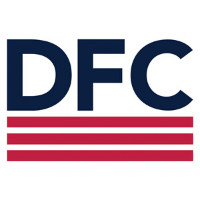
U.S. Development Finance Corporation (DFC)
Last updated on 15 Mar 2024
Key facts
DFC was formed to bring together the capabilities of OPIC and USAID’s Development Credit Authority, while introducing new and innovative financial products to better bring private capital to the developing world.
PUBLIC
2019
Credit rating (sovereign) (S&P)
AA+
Foreign currency
Authorizations
FY 2021 authorizations top sectors
Energy
34%
Financial inclusion
33%
Global health
10%
Technology and infrastructure
6%
FY 2020 authorizations
Products
- DFC provides medium and long-term debt financing through loans and guaranties
- Management of the borrower must have record of success in their field
- DFC provides financing of more than USD 50 million (up to USD 1 billion) to projects in critical infrastructure, energy, and other projects requiring large investments.
- DFC also works on projects requiring less than USD 50 million in financing (USD 1 million is the minimum).
- DFC’s Mission Transaction Unit (MTU) works with USAID to identify access to finance challenges in developing countries and partners with local, regional, and international financial institutions and businesses to mobilize private investment to advance DFC’s and USAID’s development objectives. MTU can support transactions with all of DFC’s investment tools.
- In addition to traditional DFC financing, the agency's Portfolio for Impact and Innovation (PI2) program supports early-stage social enterprises with innovative solutions to challenges facing the developing world.
- The loan tenor is usually between 5 and 20 years, with a maximum of 25 years
- Fees:
- Upfront retainer fee: Covers due diligence costs such as travel to the project site
- Facility/origination fee: A one-time, flat fee usually paid at the time of loan agreement signing or first disbursement
- Commitment fee: An annual percentage charged on any undisbursed amount
- Maintenance fee: An annual fee charged to cover the cost of monitoring the loan
- Other: The cost of the services of outside consultants or attorneys that may be required by OPIC; the funding costs associated with how the project is funded, either through the U.S. Department of Treasury or via OPIC’s Capital Markets program; and any expenses related to registration or notarization of documents, etc.
- Interest rate: A negotiated spread over the base-cost of funds
- Provides coverage of 90%–100% for up to 20 years for equity investments, loans, capital markets transactions, and other contracts
- Insurance is provided to U.S. investors, contractors, exporters, and financial institutions
- Coverage of up to USD 1 billion against losses due to currency inconvertibility, government interference, and political violence including terrorism.
- DFC also offers reinsurance to increase underwriting capacity
- Types of coverage:
- Currency inconvertibility
- Expropriation
- Bid, performance, advance payment, and other guarantee coverages
- Political violence
- Reinsurance
- Breach of contract for capital markets
- In most cases, grants for feasibility studies and technical assistance will be designed to increase the developmental impact or improve the commercial sustainability of a project that has received, or may receive, DFC financing or insurance support.
- DFC determines the technical assistance, feasibility study, or training work to be provided, and the grant recipient selects an entity with relevant expertise and experience that will perform that work.
- The program provides technical assistance for certain development credit activities requested by other agencies by utilizing a competitively selected pool of contractors.
- A current or potential DFC client that has submitted an application for DFC financing or insurance support can inform DFC of the client’s interest in the program at or following the time of submission of that application.
- DFC can provide direct equity investments into companies or projects in the developing world which will have developmental impact or advance U.S. foreign policy.
- DFC can invest debt and equity into emerging market private equity funds to help address the shortfall of private equity capital in developing countries and help these economies access long-term growth capital, management skills, and financial expertise
- DFC mobilizes private capital for direct equity investments by qualified fund managers in private companies in developing countries and emerging markets
- DFC provides debt to private equity funds
- It typically provides up to a third of a fund’s total capital
- The loan is usually structured as a zero-coupon loan
- DFC uses an open, competitive process for selecting fund managers
Policies
- DFC prioritizes investments in low and lower-middle income countries and may consider investments in certain projects in upper-middle income countries that address key agency priorities.
- DFC evaluates every project using its performance measurement tool, Impact Quotient (IQ) to measure, monitor, and evaluate its developmental impact around the world across three main areas:
- Growth
- Innovation
- Inclusion
- The guiding environmental and social policies and procedures are based in large part on environmental and social impact assessment procedures applied by organizations such as the World Bank Group and EBRD
- Projects that are likely to have significant adverse environmental or social impacts that are sensitive, diverse, or unprecedented in the absence of mitigation measures are disclosed to the public for a comment period of 60 days
- Investors must be willing to have sufficient exposure to the project to support its long-term viability
- All projects DFC supports must be within the competence of the management team, and should be demonstrated by a recent, proven record of success in the same or a closely related business as evidenced by financial statements
- DFC complements, rather than competes, with private sector lenders and supports projects that have been unable to obtain sufficient support from private lenders
News
- 2024: DFC opens first office in Latin America in Sao Paulo
- 2024: The United States and Taiwan will strengthen their collaboration to advance private sector investments around the world
- 2024: DFC reaffirms commitment to scaling investment in African infrastructure and critical minerals


